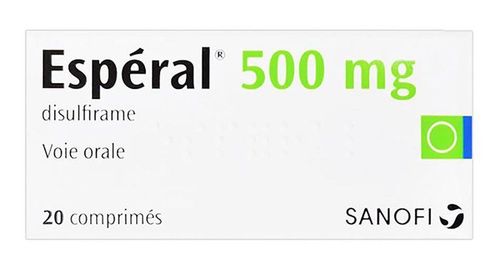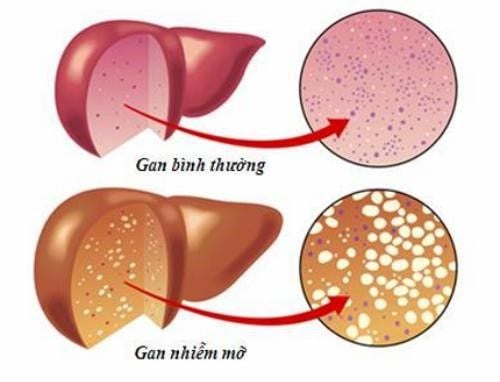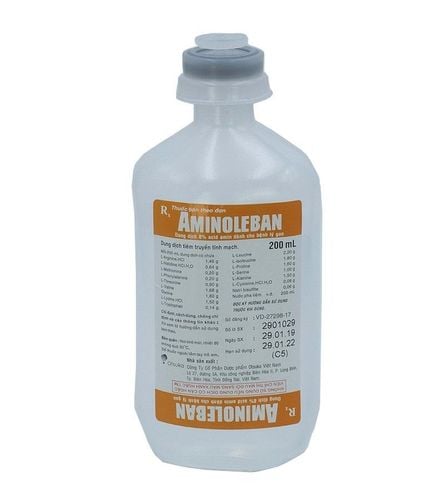Currently, there are numerous products marketed for liver detoxification and improving liver health. However, the unsupervised use of these medications can lead to side effects, and in some instances, may cause harm to the liver.
1. The Function of the Liver in the Body
The liver is a large organ responsible for multiple vital functions, including:
- Detoxification and Elimination of Toxins: Various toxins from ingested food enter the body and are processed by the liver. The liver effectively filters, removes, or neutralizes harmful substances in the body. Thus, the liver is often referred to as the body's "detoxification factory."
- Metabolism: The liver plays an essential role in the metabolic processes of the body, converting carbohydrates, proteins, and lipids into energy for cellular function.
- Bile Production: Hepatocytes produce bile, which is essential for the digestion of food.
- Storage: The liver serves as a reservoir for blood, vitamins, and minerals necessary for bodily functions.
- Immune Regulation: By synthesizing immune proteins, the liver contributes to the regulation of the immune response in the body.
2. Types of Liver Detoxification Medications Available on the Market
Consumers often struggle to distinguish liver detoxification medications from dietary supplements that claim to support liver health, improve detoxification, or cleanse the body. Generally, they can be categorized as follows:
- Herbal Detoxification Agents: These include herbal ingredients that may contain active compounds such as silymarin, silibinin, biphenyl dimethyl dicarboxylate, and flavonoids, which are purported to assist in liver detoxification.
- Synthetic Detoxification Agents: These involve synthetic compounds like biphenyl dimethyl dicarboxylate, cianidanol, flumeciol, and methionine that can be formulated as liver detoxification medications.
The primary mechanism of these liver detoxification medications is the neutralization of free radicals, which helps stabilize liver cell membranes, thereby protecting the hepatic parenchyma and assisting in the regulation of liver function. Although these medications or dietary supplements may enhance liver function and assist in the management of hepatic conditions, it is crucial to emphasize that there is insufficient scientific evidence to assert that dietary supplements genuinely detoxify the liver or resolve other hepatic issues.
3. Misconceptions Regarding Liver Detoxification Medications
- The misuse or inappropriate application of liver detoxification products can result in unwanted side effects, exacerbating pre-existing hepatic conditions and causing systemic adverse effects, with severe cases potentially leading to liver failure and posing a life-threatening risk. Therefore, self-administering liver detoxification medications or supplements without medical guidance is discouraged.
- Some patients with hepatobiliary diseases erroneously assume that solely using liver detoxification medications can treat their condition. This perspective is flawed because liver toxicity can arise from various etiologies. Identifying the underlying cause is essential for effective treatment. In reality, liver detoxification medications primarily support the management of liver damage but do not directly address the underlying disease causes. Consequently, liver detoxification products should not replace conventional medical treatments.
- Traditional folk remedies for liver detoxification, passed down through generations, do not necessarily apply to all patients. Their efficacy and outcomes depend on individual physiology, specific health conditions, dosage, administration methods, and preservation. The indiscriminate use of various herbal remedies may not only fail to yield therapeutic benefits but could also adversely impact the patient’s health.
- Some individuals with alcohol use disorder exhibit a misguided belief that they may consume excessive amounts of alcohol if they take liver detoxification medications. This is a significant misconception, as liver detoxification medications cannot provide therapeutic benefits if the underlying causes are not addressed.
4. Do hepatoprotective medications have any side effects?
Any medication introduced into the body can be considered a "double-edged sword," and hepatoprotective medications (including traditional and modern medicines) are no exception, particularly when used improperly, abused, or administered over an extended period. Improper use of hepatoprotective medications can lead to numerous repercussions. The side effects of hepatoprotective medications may include:
4.1. Increased "burden" on the liver, resulting in hepatic dysfunction
Prolonged use of hepatoprotective agents without investigating and addressing the underlying causes can exacerbate the condition. If hepatoprotective medications are misused, taken in high doses, used for an extended duration, or combined with multiple hepatoprotective agents, this can inadvertently increase the "burden" on the liver. The liver, already compromised and exposed to toxins, must work harder to metabolize the hepatoprotective substances, ultimately leading to diminished liver function. When the liver is overloaded, patients may experience fatigue and discomfort.
4.2. Hepatic injury
Certain hepatoprotective medications may contain harmful ingredients, such as methionine. The use of hepatoprotective agents containing methionine in individuals with hepatic insufficiency or cirrhosis can reduce hepatic metabolism and lead to folic acid deficiency, particularly with prolonged usage. Additionally, administering high doses or using methionine long-term may increase homocysteine levels in blood/urine, heightening the risk of atherosclerosis and potentially resulting in thrombosis-related vascular occlusion.
4.3. Systemic side effects
In addition to negatively impacting the liver, hepatoprotective medications may also induce adverse systemic effects, including:
- Nausea, vomiting
- Somnolence
- Severe acidosis (in the presence of renal pathology)
- Pruritus, erythema
- Fatigue
5. Effective liver detoxification
5.1. Addressing the underlying cause
Upon exhibiting signs of liver pathology, patients should undergo evaluation by specialists to receive appropriate diagnoses and treatment plans. Prioritizing the treatment of underlying causes is essential for effective disease management. For example, if liver toxicity results from viral hepatitis, the patient must be treated with antiviral agents; if the cause is alcoholism, cessation of alcohol consumption is necessary; and if exposure to hepatotoxic chemicals is the issue, minimizing contact with these substances is crucial.
5.2. Liver detoxification
Self-administration of hepatoprotective medications without resolving the underlying causes may be counterproductive. Supportive treatment involving hepatoprotective medications in conjunction with addressing the causes may enhance liver function effectiveness. However, these medications should only be used upon a physician's recommendation and direction; self-medication poses the risk of encountering unwanted side effects.
5.3. Other supportive measures
Several non-pharmacological interventions can facilitate liver detoxification, enhance liver function, and improve patient health:
- Engaging in a healthy lifestyle, reducing alcohol consumption and stimulant intake.
- Extreme caution should be exrcised with medication use, as some drugs may be hepatotoxic.
- Vaccination against viral hepatitis should be encouraged.
- Avoiding exposure to hazardous chemicals.
- Adopting a balanced diet, ensuring adequate nutrient intake while limiting fats and fried foods. Increasing the consumption of vegetables and fruits.
In summary, hepatoprotective medications may cause adverse effects if misused. These side effects can manifest in the liver or systemically. Therefore, the use of hepatoprotective agents requires careful consideration, and self-medication or excessive use should be avoided; consultation with a physician is recommended.
To arrange an appointment, please call HOTLINE or make your reservation directly HERE. You may also download the MyVinmec app to schedule appointments faster and manage your reservations more conveniently.








